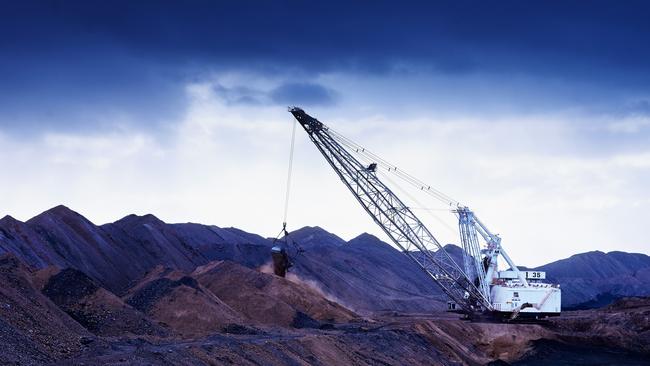
BHP is understood to have called on Goldman Sachs to work on a potential $2 billion-plus demerger of its coal mining assets.
It comes as the Australian-listed mining giant confirmed on Tuesday that a divestment of some metallurgical mines in Queensland is on the agenda, as well as its thermal coal mining interests.
Goldman Sachs worked with BHP on the demerger of its South32 spin-off in 2015 and is currently assisting BHP on its oil and gas joint venture in the Gippsland Basin, estimated to be worth at least US$2bn, as revealed by DataRoom on July 8.
BHP confirmed in its results on Tuesday that a sale of its 50 per cent interest in the Gippsland Basin oil and gas development in Bass Strait was also on the agenda after a potential sale was first tipped in DataRoom last year.
The Bass Strait fields have provided up to 40 per cent of east coast gas production but are now in decline and its joint venture partner, Exxon, is already working with JPMorgan to sell its interest.
BHP said on Tuesday while delivering its annual results that it would sell its Mount Arthur thermal coal mine in NSW and a stake in its large open pit coal mine in Colombia known as Cerrejon that it owns with Anglo American and Glencore. It will also offload two of its coking coal mines in Queensland owned under its alliance with Mitsui Coal, known as BMC.
The thinking is that the Bowen Basin-based BMC-owned open-cut mines, South Walker Creek and Poitrel Mine, could collectively fetch about $2bn.
The understanding is that BHP will package up its coking coal mines with its thermal mines and demerge the business.
This was after attempts to find a buyer prepared to pay a reasonable price for Mount Arthur proved difficult.
DataRoom can reveal that China’s Yancoal and Glencore closely scrutinised BHP’s Mount Arthur thermal coal mine in NSW for an acquisition in the past 18 months through their joint venture, according to sources.
This was under the former Australian leadership at Yancoal of Reinhold Hans Schmidt, who departed in March.
Since he has left and been replaced by David Moult, it is understood an acquisition of the thermal coal mine, which last year was predicted to fetch about US$2bn, is not on Yancoal’s agenda.
Glencore is understood to have put forward a negative price for Mount Arthur, where BHP would effectively pay the Switzerland-based trader to take the mine off its hands.
Former mining rich lister Nathan Tinkler at one stage was approached to pull together a consortium of wealthy private investors to buy the mine, but a deal never eventuated.
This was due to the fact that it could be on the hook for contingent liabilities related to rehabilitation costs.
Mount Arthur Coal Australia is the largest individual coal production site in the NSW Hunter Valley.
The mine is one of the largest surface mining operations in the world and produces high-quality thermal coal for the export market, moving 550 million tonnes of material annually.
Earlier, Macquarie and JPMorgan were involved in selling BHP’s thermal coal mine assets, as revealed last year by DataRoom, with Macquarie believed to be working on Mount Arthur and JPMorgan on Cerrejon.
However, Macquarie Capital may also emerge as an adviser for a potential sale or spin-off of the BMC assets.
Market analysts say the BMC assets, of which BHP owns 80 per cent, are being divested due to the fact that they do not produce premium coking coal and therefore do not fit well into BHP’s portfolio.
Logical buyers such as Coronado Global Resources and Peabody Energy are themselves facing funding headwinds.
This is at a time that thermal and metallurgical coal prices lag and lenders shy away from funding assets exposed to a commodity under attack for environmental reasons.
Most believe that a collective demerger of the BHP thermal and coking coal assets is the most logical option.
However, it will be interesting to see if South 32 takes a look or whether Indian or Chinese groups emerge.
In its results, BHP also signalled that over time it may also sell out of the North West Shelf asset in Western Australia, but added that a sale was not currently on the agenda.
This was given that further value was to be unlocked for the North West Shelf through securing the gas once it became a tolling operation.
- Additional reporting by Nick Evans





To join the conversation, please log in. Don't have an account? Register
Join the conversation, you are commenting as Logout